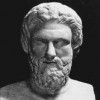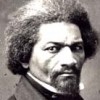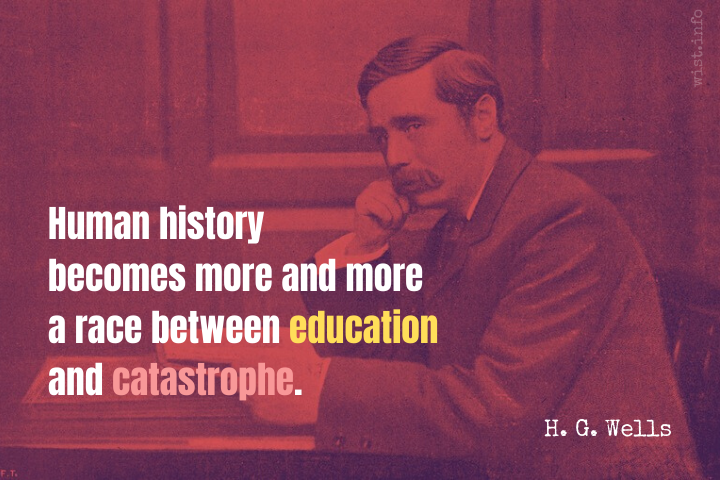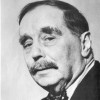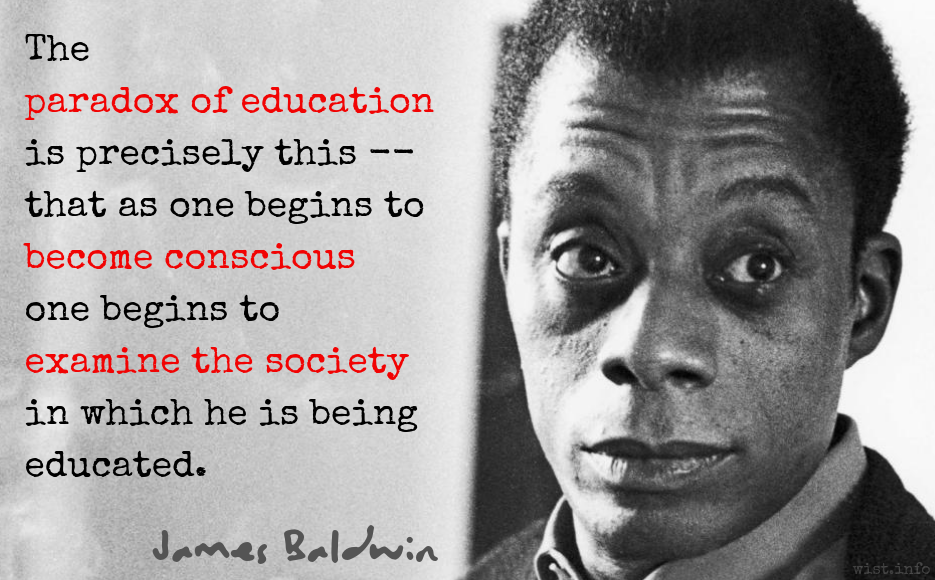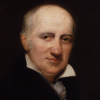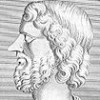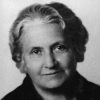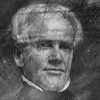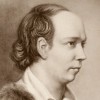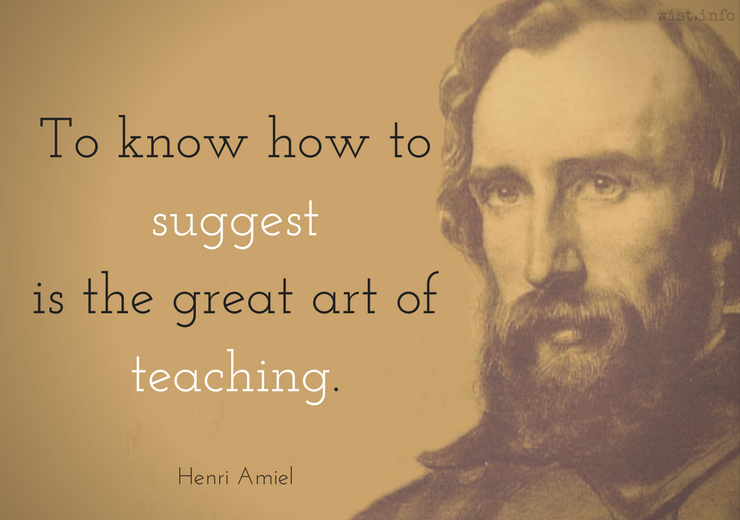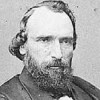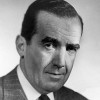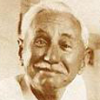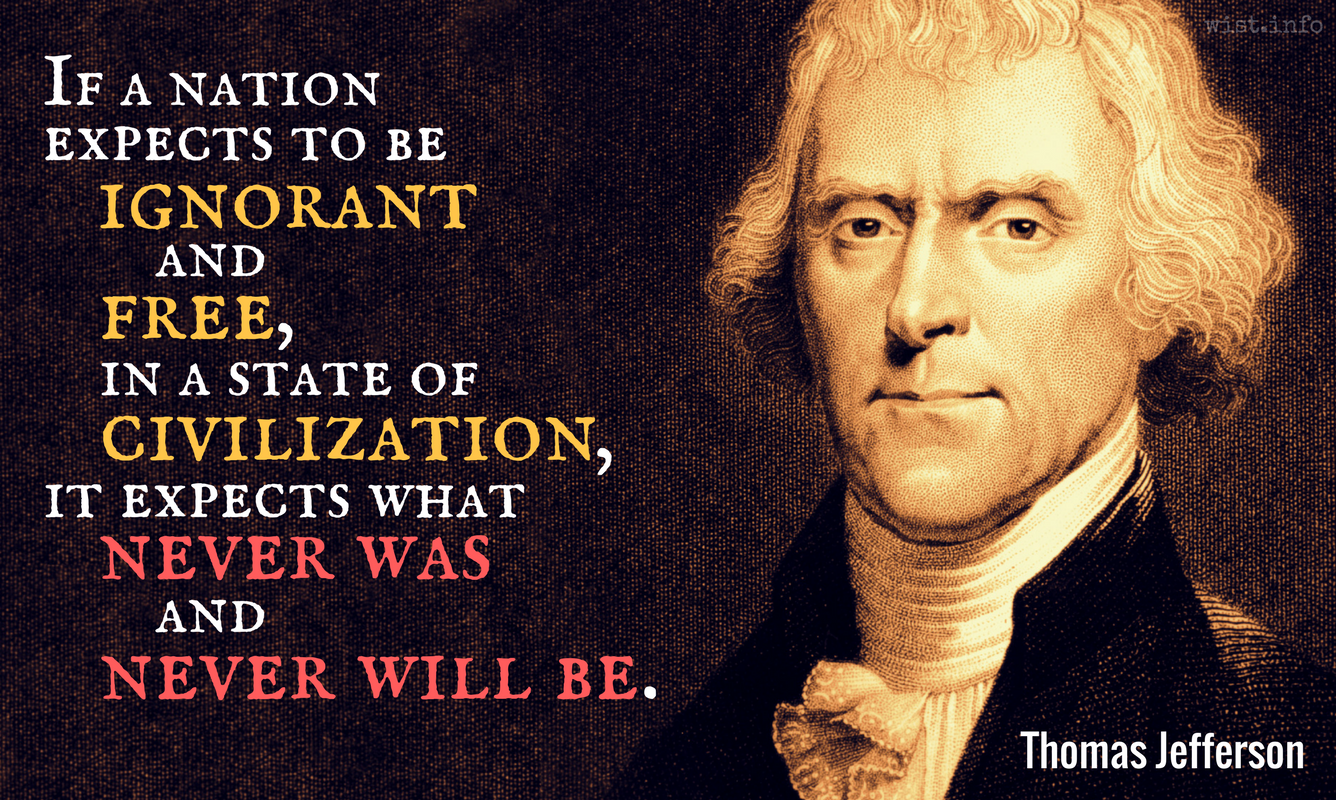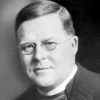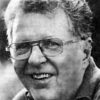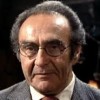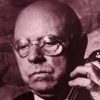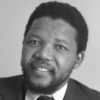I have now but one anxiety left, which is concerning you. I would have you be, what I know nobody is, perfect. As that is impossible, I would have you as near perfection as possible. I know nobody in a fairer way toward it than yourself, if you please. Never were so much pains taken for anybody’s education as for yours; and never had anybody those opportunities of knowledge and improvement which you have had, and still have. I hope, I wish, I doubt, and I fear alternately. This only I am sure of, that you will prove either the greatest pain, or the greatest pleasure of, Yours Always Truly.
Lord Chesterfield (1694-1773) English statesman, wit [Philip Dormer Stanhope]
Letter to his son, #141 (16 Feb 1748)
(Source)
Quotations about:
education
Note not all quotations have been tagged, so Search may find additional quotes on this topic.
Many much-learned men have no intelligence.
[Πολλοὶ πολυμαθέες νοῦν οὐκ ἔχουσιν.]
Democritus (c. 460 BC - c. 370 BC) Greek philosopher
Frag. 64 (Diels) [tr. Freeman (1948)]
(Source)
Diels citation "64. (190 N.) DEMOKRATES. 29."; collected in Joannes Stobaeus (Stobaios) Anthologium III, 4, 81. Freeman notes this as one of the Gnômae, from a collection called "Maxims of Democratês," but because Stobaeus quotes many of these as "Maxims of Democritus," they are generally attributed to the latter.
Alternate translations:
- "There are many who know many things, yet are lacking in wisdom." [tr. Bakewell (1907)]
- "Many who have learned much possess no sense." [tr. Barnes (1987)]
- "Many who have learned a lot do not have a mind." [tr. @sentantiq (2018)]
- "Many, though widely read, possess no sense." [Source]
Many who have not learned wisdom live wisely.
[Πολλοὶ λόγον μὴ μαθόντες ζῶσι κατὰ λόγον. ]
Democritus (c. 460 BC - c. 370 BC) Greek philosopher
Frag. 53 (Diels) [tr. Bakewell, 1907)]
(Source)
Diels citation "53. (122a N.) DEMOKRATES. 19.1."; collected in Joannes Stobaeus (Stobaios) Anthologium II, 15, 33. Often combined with fragment 53a. Bakewell lists this under "The Golden Sayings of Democritus." Freeman notes this as one of the Gnômae, from a collection called "Maxims of Democratês," but because Stobaeus quotes many of these as "Maxims of Democritus," they are generally attributed to the latter.
Alternate translations:
- "Many who have not learnt Reason, nevertheless live according to reason." [tr. Freeman (1948)].
- "Many live according to reason even if they have not learned it." [tr. @sentantiq (2020)]
- "Many do not learn reason but live in accordance with reason." [tr. Barnes (1987)]
Be both a speaker of words and a doer of deeds.
[Μύθων τε ῥητῆρ’ ἔμεναι πρηκτῆρά τε ἔργων.]
Homer (fl. 7th-8th C. BC) Greek author
The Iliad [Ἰλιάς], Book 9, l. 442 (9.442) (c. 750 BC) [tr. Leaf/Lang/Myers (1891)]
(Source)
Phoenix, on what he was sent to teach Achilles as a child to become. (Source (Greek)). Alternate translations:
That thou might'st speak, when speech was fit, and do, when deeds were done,
Not sit as dumb, for want of words, idle, for skill to move.
[tr. Chapman (1611)]
To shine in councils and in camps to dare.
[tr. Pope (1715-20)]
Both elocution and address in arms.
[tr. Cowper (1791)]
An orator in words and a performer in deeds.
[tr. Buckley (1860)]
Be both a speaker of words and a doer of deeds.
[tr. Murray (1924)]
A speaker of words and one accomplished in action.
[tr. Lattimore (1951)]
A man of eloquence and action.
[tr. Fitzgerald (1974)]
A man of words, and a man of action, too.
[tr. Fagles (1990), l. 538]
To be both a speaker of words and a doer of actions.
[tr. Merrill (2007)]
To be a speaker of words and a doer of deeds.
[tr. @Sentantiq (2016)]
Whatever help the nation can justly offer should be generously given to aid the States in supporting common schools; but it would be unjust to our people, and dangerous to our institutions, to apply any portion of the revenues of the nation, or of the States, to the support of sectarian schools. The separation of the Church and the State on everything related to taxation should be absolute.
James A. Garfield (1831-1881) US President (1881), lawyer, lay preacher, educator
Letter of Acceptance, Republican nomination for President (10 Jul 1880)
(Source)
He says, You have to study and learn so that you can make up your own mind about history and everything else but you can’t make up an empty mind. Stock your mind, stock your mind. It is your house of treasure and no one in the world can interfere with it. If you won the Irish Sweepstakes and bought a house that needed furniture would you fill it with bits and pieces of rubbish? Your mind is your house and if you fill it with rubbish from the cinemas it will rot in your head. You might be poor, your shoes might be broken, but your mind is a palace.
A learned fool is more foolish than an ignorant one.
[Un sot savant est sot plus qu’un sot ignorant.]
Molière (1622-1673) French playwright, actor [stage name for Jean-Baptiste Poquelin]
The Learned Ladies [Les Femmes Savantes], Act 4, sc. 3, l. 1296 [Clitandre] (1672)
(Source)
Alt. trans.:
A man may hear a thousand lectures, and read a thousand volumes, and be at the end of the process very much where he was, as regards knowledge. Something more than merely admitting it in a negative way into the mind is necessary, if it is to remain there. It must not be passively received, but actually and actively entered into, embraced, mastered. The mind must go half-way to meet what comes to it from without.
John Henry Newman (1801-1890) English prelate, Catholic Cardinal, theologian
The Idea of a University, Lecture 9 “Discipline of Mind,” sec. 4 (1852)
(Source)
Ah, it’s a lovely thing to know a thing or two.
[Ah, la belle chose que de savoir quelque chose.]
Molière (1622-1673) French playwright, actor [stage name for Jean-Baptiste Poquelin]
The Bourgeois Gentleman [Le Bourgeois Gentilhomme], Act 2, sc. 4 [M. Jourdain] (1670)
Title also translated as The Middle-Class Gentleman, The Tradesman turned Gentleman, The Middle-Class Aristocrat or The Would-Be Noble.
It is unclear where this highly common translation is from. Most identifiable sources are much more prosaic.
- "Ah! What a fine thing it is to know something!" [tr. Woolerey, Act 2, sc. 6; Jones; Page]
- "Ah, how wonderful it is to know something!" [tr. Applebaum (1998)]
- "How fine a thing it is but to know something!" [Source]
- "It's so reassuring to know something." [tr. Bermel (1987)]
- "Oh, what a beautiful thing it is to know something!" [tr. Pergolizzi (1999)]
- "It's wonderful to know so many things!" [tr. Rippon (2001), Act 1, sc. 3]
- Original French
EPOPS: You’re mistaken: men of sense often learn from their enemies. Prudence is the best safeguard. This principle cannot be learned from a friend, but an enemy extorts it immediately. It is from their foes, not their friends, that cities learn the lesson of building high walls and ships of war. And this lesson saves their children, their homes, and their properties.
CHORUS [LEADER]: It appears then that it will be better for us to hear what they have to say first; for one may learn something at times even from one’s enemies.
Aristophanes (c. 450-c. 388 BC) Athenian comedic playwright
The Birds, l. 375ff (414 BC) [tr. Anon. (1812), Ramage (1864)]
(Source)
Alt. trans. [Hickie (1853)]:
EPOPS: Yet, certainly, the wise learn many things from their enemies; for caution preserves all things. From a friend you could not learn this, but your foe immediately obliges you to learn it. For example, the states have learned from enemies, and not from friends, to build lofty walls, and to possess ships of war. And this lesson preserves children, house, and possessions.
CHORUS [LEADER]: It is useful, as it appears to me, to hear their arguments first; for one might learn some wisdom even from one's foes.
Alt. trans. [O'Neill (1938)]:
EPOPS: The wise can often profit by the lessons of a foe, for caution is the mother of safety. It is just such a thing as one will not learn from a friend and which an enemy compels you to know. To begin with, it's the foe and not the friend that taught cities to build high walls, to equip long vessels of war; and it's this knowledge that protects our children, our slaves and our wealth.
LEADER OF THE CHORUS: Well then, I agree, let us first hear them, for that is best; one can even learn something in an enemy's school.
“If you give a nigger an inch, he will take an ell. A nigger should know nothing but to obey his master — to do as he is told to do. Learning will spoil the best nigger in the world. Now, if you teach that nigger how to read, there would be no keeping him. It would forever unfit him to be a slave. He would at once become unmanageable, and of no value to his master. As to himself, it could do him no good, but a great deal of harm. It would make him discontented and unhappy.”
Frederick Douglass (1817-1895) American abolitionist, orator, writer
Narrative of the Life of Frederick Douglass, ch. 6 (1845)
(Source)
Quoting his master, Auld, chastising Mrs. Auld for teaching Douglass to read. Frequently paraphrased down to "Knowledge makes a man unfit to be a slave."
One of the greatest of joys known to man is to take such a flight into ignorance in search of knowledge. The great pleasure of ignorance is, after all, the pleasure of asking questions. The man who has lost this pleasure or exchanged it for the pleasure of dogma, which is the pleasure of answering, is already beginning to stiffen.
Robert Lynd (1892-1970) American sociologist [Robert Slaughton Lynd]
The Pleasure of Ignorance, ch. 1 (1921)
(Source)
The illiterate of the 21st century will not be those that cannot read or write, but those who cannot learn, unlearn, and relearn.
Alvin Toffler (1928-2016) American writer and futurist
(Paraphrase)
(Source)
Sometimes given as "The illiterate of the future ..." This ubiquitous (mis)quotation of Toffler is a conflation of two sentences in ch. 18 of Toffler's Future Shock (1970).
- On p. 414, Toffler writes, "By instructing students how to learn, unlearn and relearn, a powerful new dimension can be added to education."
- In the next paragraph, he quotes psychologist Herbert Gerjuoy: "Tomorrow's illiterate will not be the man who can't read; he will be the man who has not learned how to learn."
H.G. Wells said that history was a race between education and catastrophe, and it may be that the writer will add just sufficient impetus to education to enable it to outrace catastrophe. And if education wins by even the narrowest of margins, how much more can we ask for?
Human history becomes more and more a race between education and catastrophe.
H.G. Wells (1866-1946) British writer [Herbert George Wells]
The Outline of History, Vol. 2, ch. 41, sec. 4 (1921)
(Source)
Also attributed to Wells: "Civilization is in a race between education and catastrophe. Let us learn the truth and spread it as far and wide as our circumstances allow. For the truth is the greatest weapon we have."
The paradox of education is precisely this — that as one begins to become conscious one begins to examine the society in which he is being educated. The purpose of education, finally, is to create in a person the ability to look at the world for himself, to make his own decisions, to say to himself this is black or this is white, to decide for himself whether there is a God in heaven or not. To ask questions of the universe, and then learn to live with those questions, is the way he achieves his own identity. But no society is really anxious to have that kind of person around. What societies really, ideally, want is a citizenry which will simply obey the rules of society. If a society succeeds in this, that society is about to perish. The obligation of anyone who thinks of himself as responsible is to examine society and try to change it and to fight it -– at no matter what risk. This is the only hope society has. This is the only way societies change.
James Baldwin (1924-1987) American novelist, playwright, activist
“The Negro Child — His Self-Image,” speech (16 Oct 1963)
(Source)
Speech to educators, first published as "A Talk to Teachers," The Saturday Review (21 Dec 1963). The thesis above is restatated at the end in these words, more frequently quoted: "I began by saying that one of the paradoxes of education was that precisely at the point when you begin to develop a conscience, you must find yourself at war with your society. It is your responsibility to change society if you think of yourself as an educated person."
Just as birds sometimes go in search of grain, carrying it in their beaks without tasting it to stuff it down the beaks of their young, so too do our schoolmasters go foraging for learning in their books and merely lodge it on the tip of their lips, only to spew it out and scatter it on the wind.
Michel de Montaigne (1533-1592) French essayist
The Complete Essays, I:25 “On Schoolmasters [Du pédantisme]”
(Source)
We readily inquire, “Does he know Greek or Latin?” “Can he write poetry and prose?” But what matters most is what we put last: “Has he become better and wiser?” We ought to find out not who understands most but who understands best.
[Nous nous enquerons volontiers: “Sçait-il du Gre ou du Latin? Estriil en vers ou en prose?” Mais sìl est devenu ou plus advisé, c’estoit le principal, et c’est ce qui demeure derrier. Il falloit sènquerir qui est mieux sçavant, non qui est plus sçavant.]
Michel de Montaigne (1533-1592) French essayist
The Complete Essays, I:25 “On Schoolmasters [Du pédantisme]”
(Source)
As the true object of education is not to render the pupil the mere copy of his preceptor, it is rather to be rejoiced in, than lamented, that various reading should lead him into new trains of thinking.
William Godwin (1756-1836) English journalist, political philosopher, novelist
The Enquirer, Essay 15 “Of Choice in Reading” (1797)
(Source)
The proper method for hastening the decay of error is not by brute force, or by regulation which is one of the classes of force, to endeavor to reduce men to intellectual uniformity, but on the contrary by teaching every man to think for himself.
William Godwin (1756-1836) English journalist, political philosopher, novelist
Enquiry Concerning Political Justice, Vol. 2, bk. 8, ch. 6 “Of the Enjoyment of Liberty” (1793)
(Source)
I gladly come back to the theme of the absurdity of our education: its end has not been to make us good and wise but learned. And it has succeeded. It has not taught us to seek virtue and to embrace wisdom: it has impressed upon us their derivation and their etymology. We know how to decline the Latin word for virtue: we do not know how to love virtue. Though we do not know what wisdom is in practice or from experience we do know the jargon off by heart.
Michel de Montaigne (1533-1592) French essayist
The Complete Essays, II:17 “On Presumption” [tr. Screech (1987)]
(Source)
It is a truism that almost any sect, cult, or religion will legislate its creed into law if it acquires the political power to do so, and will follow it by suppressing opposition, subverting all education to seize early the minds of the young, and by killing, locking up, or driving underground all heretics. This is equally true whether the faith is Communism or Holy-Rollerism; indeed it is the bounden duty of the faithful to do so. The custodians of the True Faith cannot logically admit tolerance of heresy to be a virtue.
Robert A. Heinlein (1907-1988) American writer
“Concerning Stories Never Written” (Oct 1952)
(Source)
Books have led some to learning and others to madness, when they swallow more than they can digest.
Francesco Petrarca (1304-1374) Italian scholar and poet [a.k.a. Petrarch]
Remedies for Fortune Fair and Foul [De Remediis Utriusque Fortunae] [tr. Elton (1893)]
Alt. trans.: "Books have brought some men to knowledge, and some to madness. whilst they drew out of them more than they could digest." [tr. Dobson (1791)]
Alt. trans.: "Books have led some to knowledge and some to madness, who drew from them more than they could hold." [tr. Rawski (1991)]
This ideal University of Life … would never take the importance of culture for granted. It would know that culture is kept alive by a constant respectful questioning — not by an excessive and snobbish attitude of respect. Therefore, rather than leaving it hanging why one was reading Anna Karenina or Madame Bovary, an ideal course covering nineteenth-century literature would ask plainly “What is it that adultery ruins in a marriage?” Students in the ideal University of Life would end up knowing much the same material as their colleagues in other institutions, they would simply have learned it under a very different set of headings.
Alain de Botton (b. 1969) Swiss-British author
“Reclaiming the Intellectual Life for Posterity,” Liberal Education (Spring 2009)
(Source)
When you teach your son, you teach your son’s son.
The Talmud (AD 200-500) Collection of Jewish rabbinical writings
Seder Nashim, Kiddushin 30a
Paraphrase of "This serves to say to you that whoever teaches his son Torah, the verse ascribes him credit as though he taught him, and his son, and his son’s son, until the end of all generations" (alt. trans. "to him who teaches his son Torah, the Writ ascribes merit as though he had taught him, his son and his son's son until the end of all time!"). This is in turn referenced to Deut. 4:9.
It should be quite unnecessary to point the moral; the right telling of the story should be sufficient. Do not moralize, but let the facts produce their own moral in the child’s mind.
Bertrand Russell (1872-1970) English mathematician and philosopher
Education and the Good Life, ch. 11 (1926)
(Source)
I don’t think the boy of lively mind is hurt much by going to college. If he encounters mainly jackasses, then he learns the useful lesson that this is a jackass world.
H. L. Mencken (1880-1956) American writer and journalist [Henry Lewis Mencken]
“Editorial,” The American Mercury (April 1926)
(Source)
Reprinted in Prejudices: Sixth Series (1927).
There is nothing which spreads more contagiously from teacher to pupil than elevation of sentiment: Often and often have students caught from the living influence of a professor a contempt for mean and selfish objects, and a noble ambition to leave the world better than the found it; which they have carried with them throughout life.
John Stuart Mill (1806-1873) English philosopher and economist
“On Education,” speech, University of St Andrews (1 Feb 1867)
(Source)
Prejudices, it is well known, are most difficult to eradicate from the heart whose soil has never been loosened or fertilized by education; they grow there, firm as weeds among stones.
Charlotte Brontë (1816-1855) British novelist [pseud. Currer Bell]
Jane Eyre, ch. 29 (1847)
(Source)
A teacher who is attempting to teach without inspiring the pupil with a desire to learn is hammering cold iron.
Horace Mann (1796-1859) American educator
(Attributed)
Quoted in The Eclectic Magazine, Vol. 8 (Jan-Jun 1868), and in The Myrtle, Vol. 24, #40 (30 Jan 1875)
Those masters who allege the incapacity of tender years, only tacitly reproach their own: those who are incapable of teaching young minds to reason, pretend that it is impossible. The truth is they are fonder of making their pupils talk well than think well; and much the greater number are better qualified to give praise to a ready memory than a sound judgment.
Oliver Goldsmith (1730-1774) Irish poet, playwright, novelist
The History of England; in a Series of Letters from a Nobleman to His Son, Letter 1 (1764)
(Source)
It is common to assume that human progress affects everyone — that even the dullest man, in these bright days, knows more than any man of, say, the Eighteenth Century, and is far more civilized. This assumption is quite erroneous. The men of the educated minority, no doubt, know more than their predecessors, and some of them, perhaps, it may be said that they are more civilized — though I should not like to be put to giving names — but the great masses of men, even in this inspired republic, are precisely where the mob was at the dawn of history. They are ignorant, they are dishonest, they are cowardly, they are ignoble. They know little if anything that is worth knowing, and there is not the slightest sign of a natural desire among them to increase their knowledge.
H. L. Mencken (1880-1956) American writer and journalist [Henry Lewis Mencken]
“Homo Neandertalensis,” Baltimore Evening Sun (29 Jun 1925)
(Source)
This instrument can teach. It can illuminate. Yes, and it can even inspire. But it can do so only to the extent that humans are determined to use it to those ends. Otherwise, it is merely wires and lights in a box.
Civilization is not inherited; it has to be learned and earned by each generation anew; if the transmission should be interrupted for one century, civilization would die, and we should be savages again.
William James (Will) Durant (1885-1981) American historian, teacher, philosopher
The Lessons of History, ch. 13 “Is Progress Real?” (1968) [with Ariel Durant]
(Source)
If a nation expects to be ignorant & free, in a state of civilisation, it expects what never was & never will be. The functionaries of every government have propensities to command at will the liberty & property of their constituents. there is no safe deposit for these but with the people themselves; nor can they be safe with them without information. Where the press is free and every man able to read, all is safe.
Thomas Jefferson (1743-1826) American political philosopher, polymath, statesman, US President (1801-09)
Letter to Charles Yancey (6 Jan 1816)
(Source)
I must judge for myself, but how can I judge, how can any Man judge, unless his Mind has been opened and enlarged by Reading.
John Adams (1735-1826) American lawyer, Founding Father, statesman, US President (1797-1801)
Diary (1761-08-01)
(Source)
Ignorance is king. Many would not profit by his abdication. Many enrich themselves by means of his dark monarchy. They are his Court, and in his name they defraud and govern, enrich themselves and perpetuate their power. Even literacy they fear, for the written word is another channel of communication that might cause their enemies to become united. Their weapons are keen-honed, and they use them with skill. They will press the battle upon the world when their interests are threatened, and the violence which follows will last until the structure of society as it now exists is leveled to rubble, and a new society emerges. I am sorry: But that is how I see it.
From your parents you learn love and laughter and how to put one foot before the other. But when books are opened you discover you have wings.
Histories make men wise; poets, witty; the mathematics, subtle; natural philosophy, deep; moral, grave; logic and rhetoric, able to contend.
Francis Bacon (1561-1626) English philosopher, scientist, author, statesman
“Of Studies,” Essays, No. 50 (1625)
(Source)
To spend too much time in studies is sloth; to use them too much for ornament, is affectation; to make judgment wholly by their rules, is the humor of a scholar. They perfect nature, and are perfected by experience: for natural abilities are like natural plants, that need pruning, by study; and studies themselves, do give forth directions too much at large, except they be bounded in by experience.
Francis Bacon (1561-1626) English philosopher, scientist, author, statesman
“Of Studies,” Essays, No. 50 (1625)
(Source)
In England it is not ungentlemanly to steal halfpennies from children, and industrial interests, it may be assumed, will oppose any reform which interferes with the supply of cheap juvenile labour.
Everybody is a genius. But if you judge a fish by its ability to climb a tree, it will live its whole life believing that it is stupid.
I suggest that the only books that influence us are those for which we are ready, and which have gone a little farther down our particular path than we have yet got ourselves.
Each second we live is a new and unique moment of the universe, a moment that will never be again. And what do we teach our children in school? We teach them that two and two make four and that Paris is the capital of France. When will we also teach them what they are? We should say to them: Do you know what you are? You are a marvel. You are unique. In all the years that have passed, there has never been another child like you. And look at your body — what a wonder it is! Your legs, your arms, your clever fingers, the ways you move. You may become a Shakespeare, a Michelangelo, a Beethoven. You have the capacity for anything. Yes, you are a marvel. And when you grow up, can you then harm another who is, like you, a marvel? You must work — we must all work — to make the world worthy of its children.
It is through education that the daughter of a peasant can become a doctor, that the son of a mine worker can become the head of the mine, that a child of farm workers can become the president of a great nation. It is what we make out of what we have, not what we are given, that separates one person from another.











